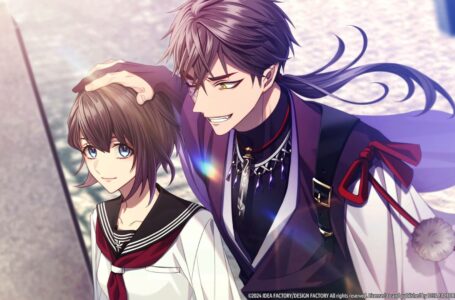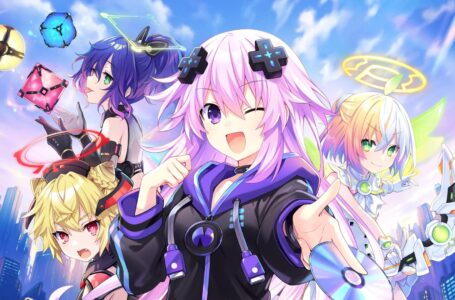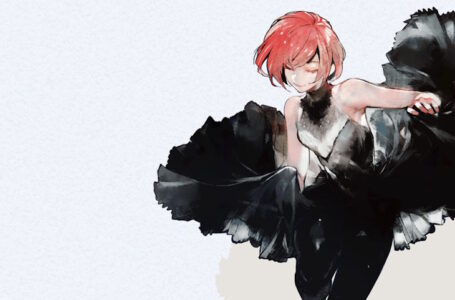Six of the best PS3 and Vita titles that deserve a second chance
Following the very welcome news that eastasiasoft is bringing back Idea Factory’s cult classic Mugen Souls for a modern English-speaking audience — and this time with all the material that was in the original Japanese release — I got thinking about what PS3 and Vita games should get the same treatment.
After all, the particular era in PS3 and Vita gaming when Mugen Souls was released was quite distinctive; it was arguably the beginning of a lot of Japanese developers really starting to push the boundaries of what they could get away with in terms of ecchi content.
Ecchi content had previously existed in video games, of course — you might be surprised quite how lewd some classic Japanese games get, all the way back to the 8-bit era! — but it was in the PS3 and Vita heyday that the distinctive Japanese brand of light-hearted pervy humour really got a foothold in the west as well as its native territory… much to the chagrin of the more strait-laced western games journalists, of course.
With that in mind, here’s six top picks from the PS3 and Vita era that we think should get some sort of grand comeback on today’s platforms, such as Switch. (And yes, I know some of these are already available on PC, but we’re talking specifically boxed console releases to put on your shelf here rather than digital things that you’ll immediately lose in the depths of your Steam library.)
Monster Monpiece
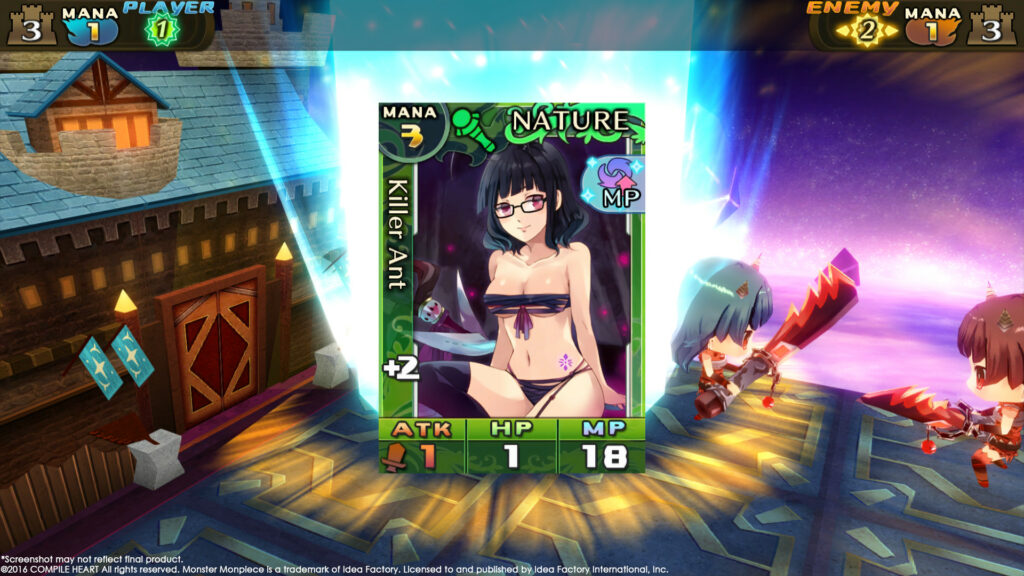
Most of Compile Heart’s Genkai Tokki series, which originated in the PS3 and Vita era, is already available on Switch — to date, we’ve had rereleases of Moero Chronicle, Moero Crystal and Seven Pirates — so I’d say it’s more than about time we had the first entry in the series make a grand comeback.
One interesting thing about the Genkai Tokki series is that it doesn’t stick to being just one thing. While both Moero Chronicle and Moero Crystal were first-person grid-based dungeon crawlers, Seven Pirates was a more conventional RPG, albeit with some rather unconventional (and boob-centric) progression mechanics. Likewise, Monster Monpiece is also rather different from the rest of the series.
In this case, it’s a game in which you collect a variety of cards (featuring anime-style art of varying degrees of provocativeness) and then use them to play a tactical battle game. The characters on your cards become cute little chibi models as they fight it out, and the result is a rather enjoyable experience. There’s a multiplayer mode, as you might expect from a game like this, but the highlight for most is the extensive single-player story mode.
Hyperdevotion Noire: Goddess Black Heart
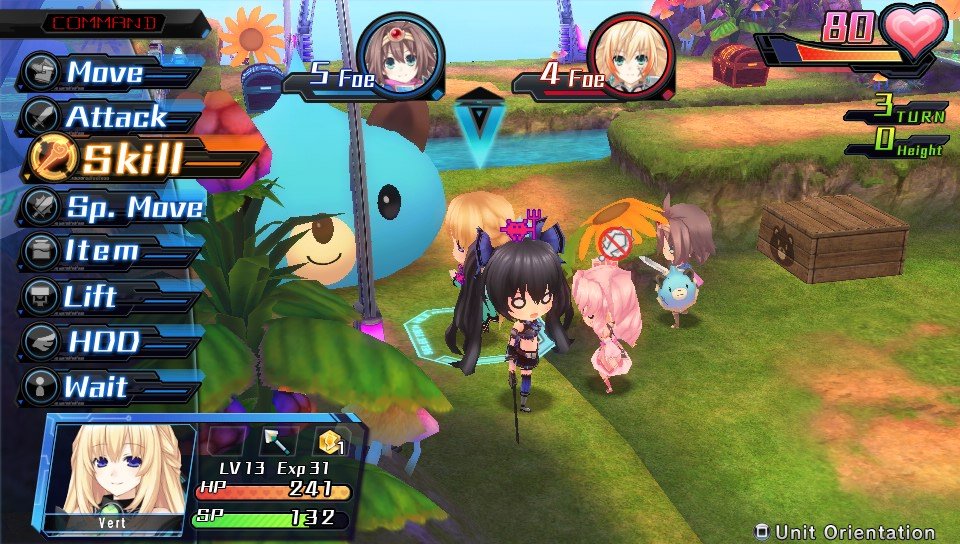
There are several Neptunia games from the PS3 and Vita era that I could happily include in this list, but I’ll keep it to one — one of my all-time favourites, in fact. Hyperdevotion Noire: Goddess Black Heart is a tactical RPG take on the Neptunia series that, as the name suggests, places Noire in the leading role rather than Neptune.
Controversial to some fans for featuring a self-insert player-protagonist that some felt went against the series’ core yuri values, Hyperdevotion Noire is a mechanically solid game that is particularly noteworthy for how accessible it makes the often complex and overwhelming tactical RPG genre. There are plenty of strategic options to take with the massive playable cast of characters, but the core gameplay is straightforward enough to keep newcomers from feeling discouraged.
Hyperdevotion Noire features plenty of the series’ good, satirical humour also. Rather than most of the characters personifying games consoles or publishers this time around, much of the playable cast is based on specific famous video game franchises. It can be a lot of fun simply playing “spot the reference” with the various characters you meet along the way — and it’s even better when a girl representing a favourite series turns out to be an absolute beast on the battlefield.
Dungeon Travelers 2: The Royal Library and the Monster Seal
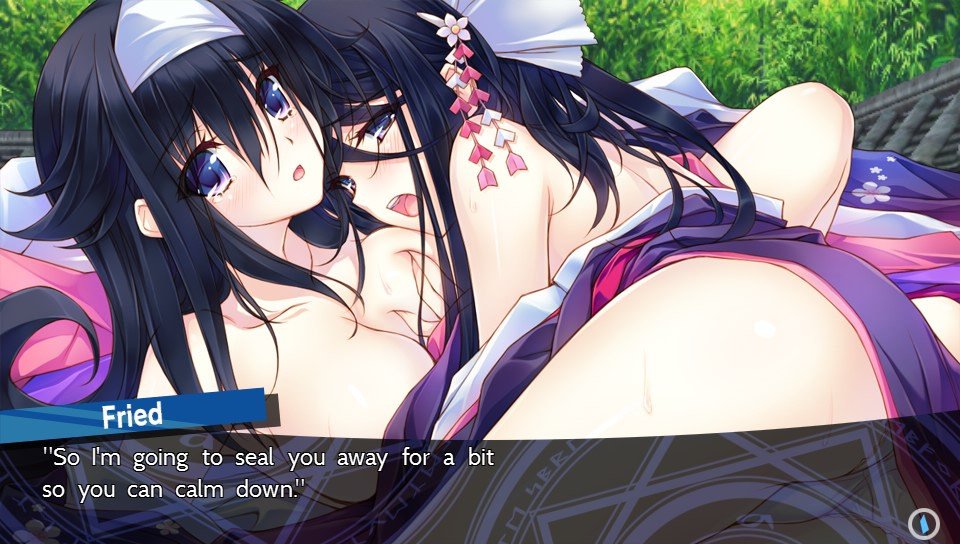
I’ve banged on about how good Dungeon Travelers 2 is numerous times on this ‘ere website, but it bears repeating: this classic from the PS3 and Vita era deserves another chance at success. It really is one of the most mechanically sound dungeon crawlers you’ll ever play, featuring a vast cast of playable characters, each of whom is fully customisable, and some brilliantly designed dungeons to explore.
One of the most noteworthy things about it is how it was berated by western games journalists when it was first announced for its ecchi art — and yet everyone who played it discovered that it actually had some wonderfully well-realised characters and a brilliantly crafted world, too. The game’s “sub-event” system means that pretty much every one of the playable characters will react to almost anything that happens in the game, giving them a real feeling of authenticity rather than simply being collections of stats.
Leave a character on the bench for too many expeditions and she’ll complain. Level her up to max and “promote” her and she’ll praise you. The characters will even react to very specific happenings in the dungeon, such as being interrupted during spellcasting or afflicted with specific status effects. Collecting all these little scenes in the game is almost as much fun as crawling the dungeons!
The Guided Fate Paradox
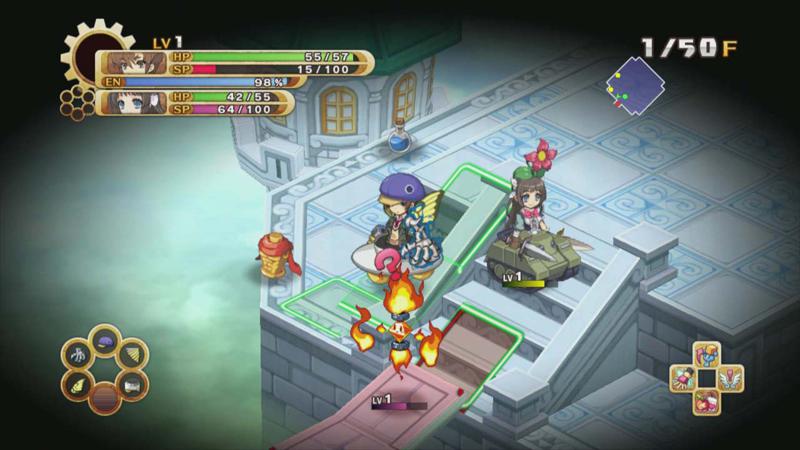
A spiritual successor to Nippon Ichi Software’s excellent isometric dungeon crawler ZHP: Unlosing Ranger vs. Darkdeath Evilman, The Guided Fate Paradox is another game from the PS3 and Vita era that incorporates roguelike elements into a more substantial overall metagame to produce a truly special experience that can potentially keep you busy for a very long time indeed.
Unfolding in the same multiverse as Disgaea, The Guided Fate Paradox casts you in the role of Renya, a young man who wins the position of God in a mall raffle. By traversing numerous dungeons accompanied by angels, Renya must grant the wishes of people back on Earth who are praying to him — but naturally, things are complicated by outside influences along the way.
Like ZHP, The Guided Fate Paradox features an ongoing progression system alongside the roguelike-style per-run progression. As you play through the game, Renya’s base stats increase — so the more you play, the better he becomes at “level 1”, allowing you to take on more and more significant challenges.
Of all the entries on this list, I suspect this is the most likely to happen — perhaps as part of Nippon Ichi’s “Prinny Presents NIS Classics” lineup.
3D Dot Game Heroes
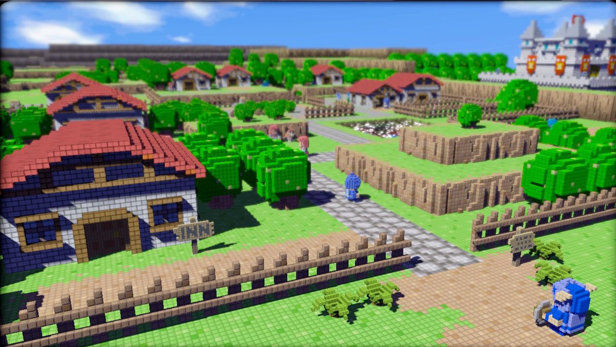
An absolutely fantastic homage to classic Zelda titles, all presented using 3D pixels with a delightful tilt-shift effect giving a rather “toy-like” appearance to everything. 3D Dot Game Heroes is an excellent title from the PS3 and Vita era that features solid gameplay, excellent customisation — you can create your own characters using the 3D pixels — and a great sense of humour.
Whether it’s running into references to its contemporaries such as Demon’s Souls, more nostalgic homages or simply admiring the absurd length the main character’s sword can reach when fully powered up, 3D Dot Game Heroes is a consistently joyful experience that deserves to be remembered and celebrated.
With 3D pixel art having a rather timeless appeal, very little would need to be done to this one to bring it up to “modern” standards. Just get it ported already!
Cross Edge
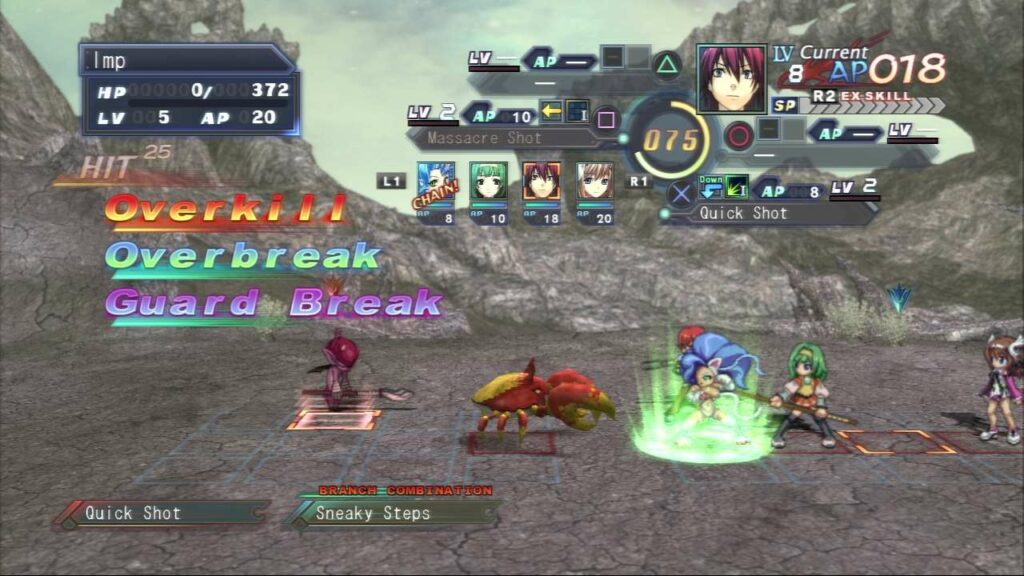
There was a brief period during the PS3 and Vita era where multiple game companies would come together and produce “crossover” titles. The Neptunia series actually started as one of these, and 2008’s Cross Edge was another good example, featuring characters from Gust’s Ar Tonelico, Capcom’s Darkstalkers and Nippon Ichi’s Disgaea, among other things.
Like many other Idea Factory and Compile Heart titles from the PS3 era, the game had a poor critical reception from the mainstream press, but developed something of a cult following. This, in turn, helped cement Idea Factory’s position among western enthusiasts of Japanese games, many of whom appreciated that the company often put out titles that clearly had ambition but not necessarily the budget to fully realise those ambitions.
As mixed a reception as it had, it would be great to see Cross Edge return on a modern system. Unfortunately, with the licensing nightmare that the playable cast would likely be today, it’s probably the least likely entry on this list to actually happen. But hey, we can dream, huh — and in the meantime, that original PS3 version isn’t all that pricey.
Join The Discussion
Rice Digital Discord
Rice Digital Twitter
Rice Digital Facebook
Or write us a letter for the Rice Digital Friday Letters Page by clicking here!
Disclosure: Some links in this article may be affiliate links, which means we may earn a small commission if you make a purchase after clicking on them. This is at no additional cost to you and helps support Rice Digital!
- Letter from the Editor: passing the torch - June 30, 2023
- Super Woden GP 2 is looking promising - June 30, 2023
- Inti Creates is making a 32 bit-style Love Live action platformer - June 26, 2023





